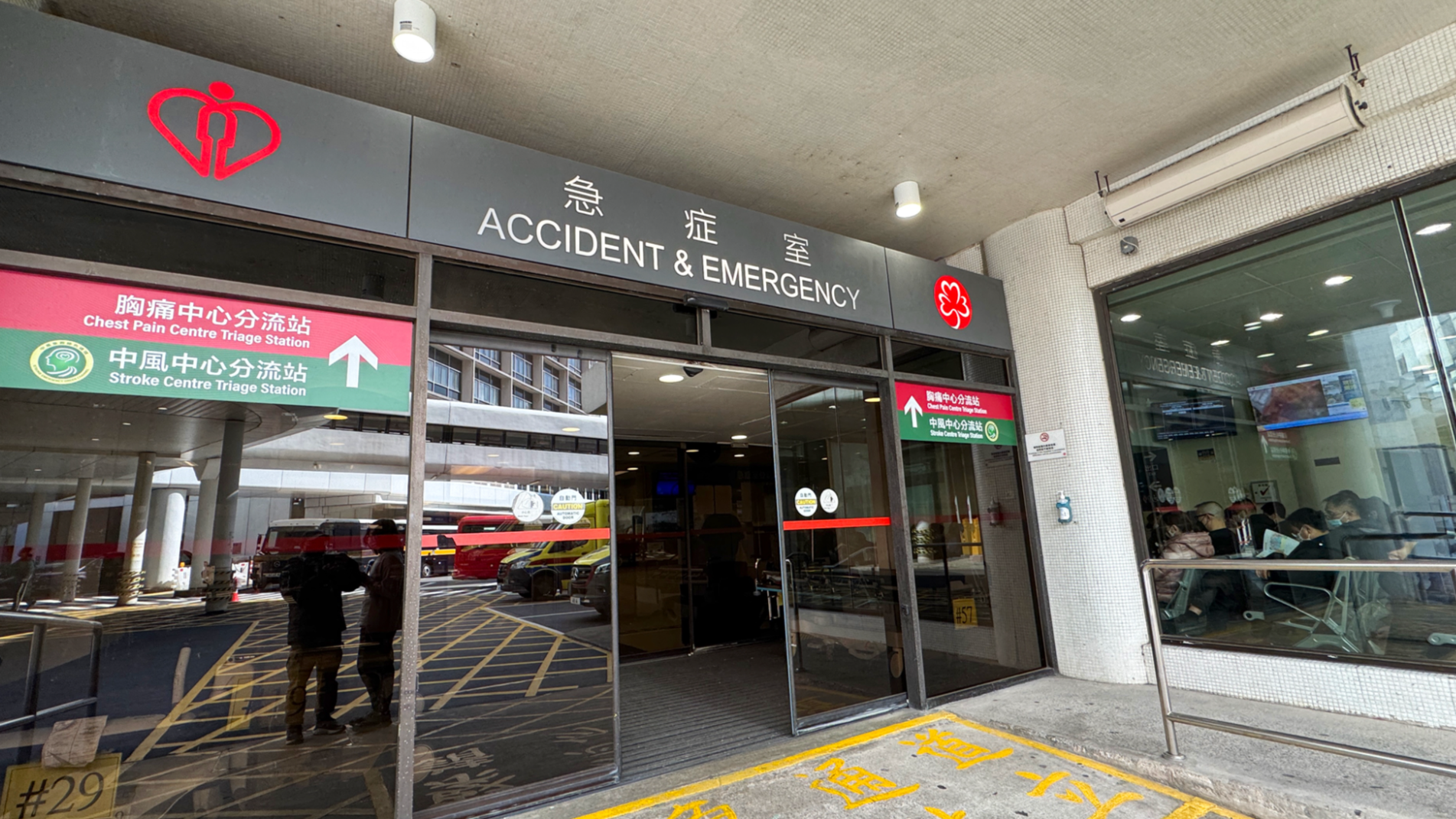
Hong Kong’s public healthcare system will be revamped next year, with higher service charges for non-urgent cases and an annual cap on medical expenses.
The aim is to allow more medical resources to be used for patients with urgent and long-term medical needs.
At a news conference on Tuesday, government officials estimated that the first phase of the fee reform, starting next year, will generate an additional HK$3 billion ($385.9 million) annually for the city to increase public medical resources, while easing the financial burdens of about 70,000 patients who rely on hospital services frequently.
From Jan 1 next year, each non-urgent visit to a public hospital for accident and emergency services will cost HK$400 instead of the current flat fee of HK$180. Critically-ill patients will be exempted under the plan.
ALSO READ: Ko: HK healthcare system considered one of the most efficient globally
The daily cost of a bed place in an emergency ward will be increased from HK$120 to HK$300. The HK$75 fee for admission to an emergency ward will be waived, while a bed place for rehabilitation, infirmary and psychiatric treatment will be doubled to HK$200 a day.
For outpatient services, the consultation fee at general outpatient clinics will be raised to HK$150 from HK$50 at present. The consultation charge at specialist clinics will go up to HK$250 for each visit.
After the revamp, fees for each drug item for specialist outpatient and general outpatient consultation will be increased to HK$20 and HK$5, respectively. Each chargeable unit covers a period of up to four weeks’ supply of a drug item.

For pathology tests and non-emergency radiology services, the basic services will remain free, while the fee for advanced and high-end services will be between HK$50 and HK$500 each time.
An annual medical expense cap of HK$10,000 will be imposed after the reform to benefit patients with life-threatening conditions and those with frequent consultation and treatment needs.
The government will also expedite the introduction of innovative medical devices, and subsidize more patients with moderate income to purchase self-funded devices.
ALSO READ: CE: Adjusting HK public hospital fees ‘not a cost-cutting exercise’
A government source said that the revamp will lower the public medical system’s overall subsidization rate from 97.6 percent to 94 percent, which is constructive for maintaining high-quality medical services.
The fees will be reviewed on a biennial basis, Secretary for Health Lo Chung-mau said, adding that an overall subsidy rate of 90 percent will be maintained when a five-year period ends.
Lo emphasized the importance of establishing a sustainable medical charging system to deliver more precise healthcare assistance while preventing the misuse of resources.
The authorities said the government’s support for patients will be enhanced, such as relaxing the requirement for patients applying for the Hospital Authority’s various subsidy programs, including the Safety Net program -- a subsidy initiative providing financial assistance for eligible patients to buy medicines that are not covered by the standard fees and charges in public hospitals and clinics – and the Waiving of Medical Charges program.
READ MORE: HK to charge for non-emergency tests in public hospitals, curb overuse
The number of eligible beneficiaries of these medical subsidy programs is expected to rise from the current 300,000 to 1.4 million residents after the reforms are implemented, and the annual fee cap will help about 70,000 patients with critical conditions, said Tony Ko Pat-sing, chief executive of the Hospital Authority.
Lawmaker Dennis Lam Shun-chiu, who’s also a veteran ophthalmologist, expressed support for the reforms, saying this would enable medical resources to be allocated more precisely.
Instead of a mere price hike, the revamp will help patients to reconsider their healthcare options and alleviate the stress on the public healthcare system, he said.
Lam hopes the government will consider introducing more nighttime public clinic services that would not only divert non-emergency patients away from public hospitals, but also allow more residents to receive timely treatment, thus enhancing the overall efficiency of the healthcare system.
Contact the writer at atlasshao@chinadailyhk.com


